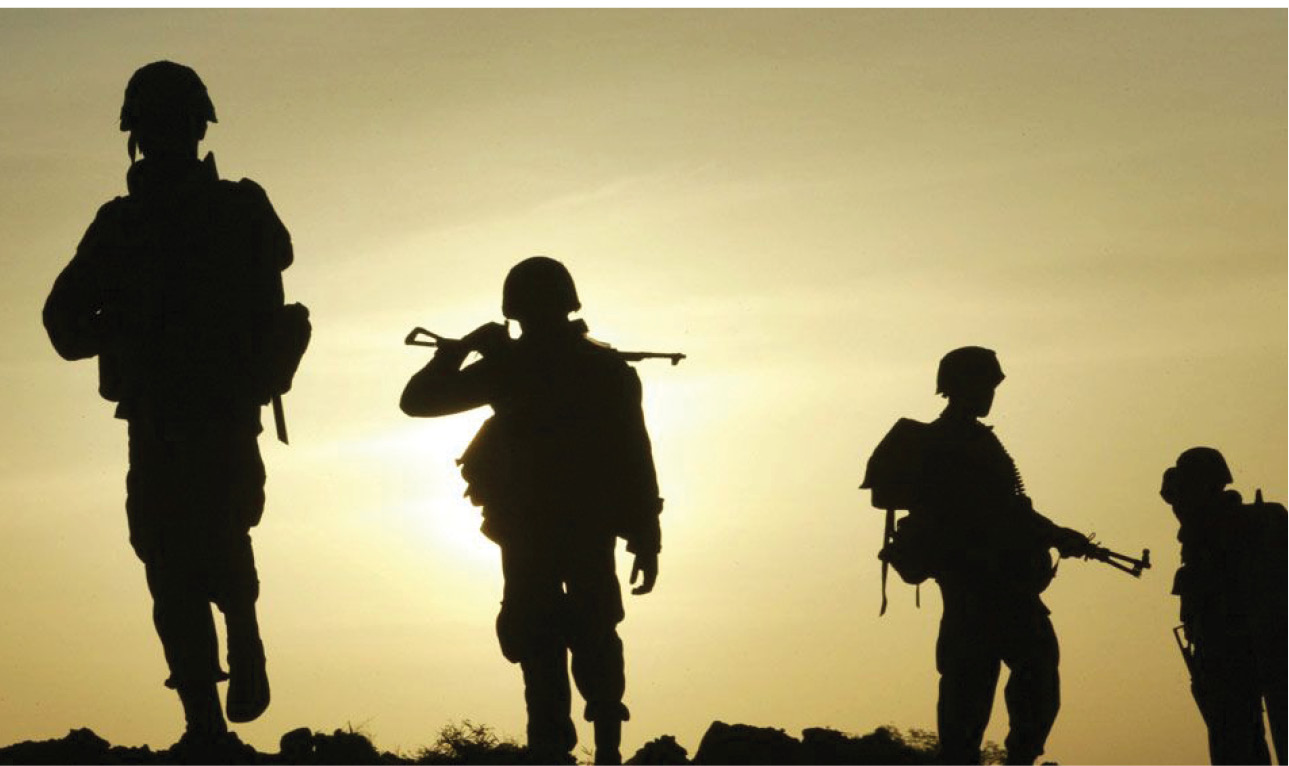How does a smart African leader guarantee that there is no coup d’etat against him?
In Cameroon, 90-year old President Paul Biya on Wednesday undertook a wide-ranging “reshuffle” of his country’s defence ministry and armed forces on Wednesday, hours after a coup next door in Gabon, the eighth in West and Central Africa in just three years.
In Rwanda, President Paul Kagame deployed a similar approach that involved the retirement of about one dozen generals, 83 senior officers, six junior officers, 86 senior non-commissioned officers. In addition, 678 soldiers were let go following the end of their contracts, and 160 others discharged on medical grounds.
In Gabon itself, President Ali Bongo, in the 56th year of his family’s stranglehold on power, seemed to have just enough in his body to cry out in one final video.
Speaking in English, he asks his friends all over the world to “make noise”—which he repeats several times—about his plight.
Noise. Think about that.
“The people here have arrested me and my family,” he laments. “My son is somewhere, my wife is in another place … Right now, I’m at the [presidential] residence and nothing is happening. I don’t know what’s going on…”
A coup is strange. Powerful and all-important one moment, a man dreaming of returning to the glamour and bombast of the United Nations General Assembly in a matter of weeks finds himself suddenly cast adrift. Nobody is accepting orders let alone implementing them.
Worse still, everyone appears not to hear the words emanating from his mouth, which is why loud banging and clanging for “noise” may be called for.
Some of Bongo’s friends heard his call last week. But just as he forgot to speak in French, they heard the message for themselves. They heard him to be saying that they must save themselves. It is why, in Cameroon and Rwanda, the presidents were rearranging the administrative furniture.
In West Africa, everyone has seen the political pantomime following the preceding coup in the Republic of Niger. The Economic Community of West African States immediately issued a threat to use force to restore the constitutional order in that country.
That threat was laughed out of court: the court of public opinion, that is, first in Niger, and then all over the region. In that country, they held street protests in support of the coup, drew unflattering images of Tinubu, erected caricatures, and called him names.
The deepest guffaws were in Nigeria, which is ruled by Bola Ahmed Tinubu, a man whose grip on the political power he wields in his country is sadly as slippery as his credibility as a person.
For a people who often do not agree on anything, Nigerians presented a unanimous front before Mr. Tinubu: if he wanted to go to war, it will be his war, not their nation’s. His threats quickly shriveled.
Following the events in Gabon, Tinubu then revealed a changed world view: that diplomatic options now have priority on the Niger issue. But apparently troubled about his own fate, he said that “copycats will [engineer other coups in Africa] until it is stopped.”
He was speaking to Muhammad Sa’ad Abubakar III, the Sultan of Sokoto, a pacifist who was already privately involved on the diplomatic chase since the coup in Niger while Tinubu was saber-rattling.
Copycats? Stopped? They are understandable choices of words for the Nigeria ruler. Taken together, they reveal a refusal to confront the basic issue.
The coups in the eight African states in the past three years partly reflect their toxic neocolonial relationships with France. It is a relationship that must be redefined, and trying to use military muscle in any of those countries would be to engage in the wrong war.
Of greater importance, the coups reflect the terrible quality of leadership that African nations continue to suffer: kakistocracies and kleptocracies that humiliate and torture the most vulnerable, particularly the youth. To declare them copycats that must be stopped is mischievous, at best.
Africa is in its third phase of coups. In the first, military regimes arrived to “correct” the mis-governance and corruption of post-colonial leaderships. In the second, other military groups moved against their colleagues who had allegedly become what they rose against in the first place. In the current, the third, soldiers are retaking power from civilians, mimicking the first phase. A popular way to phrase this is that military regimes are bringing down democracies.
As a proposition, neither soldiers nor revolutionaries should forcibly remove a democratically-elected government, and I would neither support such a development nor any copycats anywhere else.
But what is the answer to a situation where the government was not democratically elected, or where kakistocrats and kleptocrats assume control and the nation has no chance of voting them out?
More than anywhere else, post-colonial Africa has become a two-decade theatre of the ridiculous where so-called leaders assume offices they treat as personal property and have no intention of relinquishing. Whether sick or healthy or incoherent, they would amass a fortune and travel the world. They would squander their nation’s resources on themselves and their families, refusing to let their nations grow beyond their personal limitations, their hypocrisy, and their cynicism.
This month many of them will gather to continue an annual ritual. Between the 19th and 26th in the general debate, many of them will repeat their empty speeches or those of their predecessors. Most of them have no consciousness of the SDGs, the global development plan to which they committed in 2015.
Consider, for example, the hundreds of thousands of uncompleted projects and unimplemented agreements throughout Nigeria. As highly-placed government officials buy more cars, build or buy more mansions at home and abroad, marry more wives and send their children to school wherever they please, most Nigerian youths are often out of class or unemployed, or being brutalized by the security forces for being on the streets seeking a lifeline.
No: the most prominent coups in Africa are by governments and their former officials, against the people. They are the reason why leaders and their officials, once out of office, are scared as they are carried away by a wealth and lifestyle they never earned.
Deathly scared to mix with their people. It is a coup that is remorsely repeated everyday, and it is the only coup that African governments really need to fear.
Because it is felt the most by an increasingly frustrated youth. Angry but also intelligent and fearless. And because, unlike their parents and grandparents, this is a generation that is largely limitless.
Bulletproofing a government against a coup? That is old-school. The question is not whether there will be a coup. It is whether, should there be an outbreak of thieves in the night, you will know where to run.


 Join Daily Trust WhatsApp Community For Quick Access To News and Happenings Around You.
Join Daily Trust WhatsApp Community For Quick Access To News and Happenings Around You.


